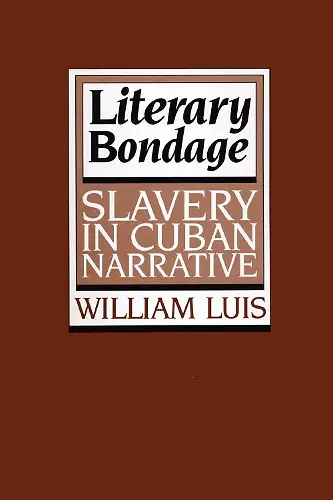Literary Bondage
Slavery in Cuban Narrative
Format:Paperback
Publisher:University of Texas Press
Published:1st Mar '90
Currently unavailable, and unfortunately no date known when it will be back

In the nineteenth century, the Cuban economy rested on the twin pillars of sugar and slaves. Slavery was abolished in 1886, but, one hundred years later, Cuban authors were still writing antislavery narratives. William Luis explores this seeming paradox in his groundbreaking study Literary Bondage, asking why this literary genre has remained a viable means of expression.
Applying Foucault's theory of counter-discourse to a vast body of antislavery literature, Luis shows how these narratives have always served to undermine the foundations of slavery, to protest the marginalized status of blacks in Cuban society, and to rewrite the canon of "acceptable" history and literature. He finds that emancipation did not end the need for such counter-discourse and reveals how the antislavery narrative continues to provide a forum for voices that have been silenced by the dominant culture.
In addition to such well-known works as Cecilia ValdÉs, The Kingdom of This World, and The Autobiography of a Runaway Slave, Luis draws on many literary works outside the familiar canon, including Romualdo, uno de tantos, Aponte, SofÍaLa familia UnzÚazu, El negrero, and Los guerrilleros negros. This comprehensive coverage raises important questions about the process of canon-formation and brings to light Cuba's rich heritage of Afro-Latin literature and culture.
... a distinct contribution to the study of black culture in Caribbean literature. Luis's research and his analysis of textual formation and of the texts themselves are all painstakingly executed. (World Literature Today)
ISBN: 9780292741324
Dimensions: unknown
Weight: 454g
326 pages